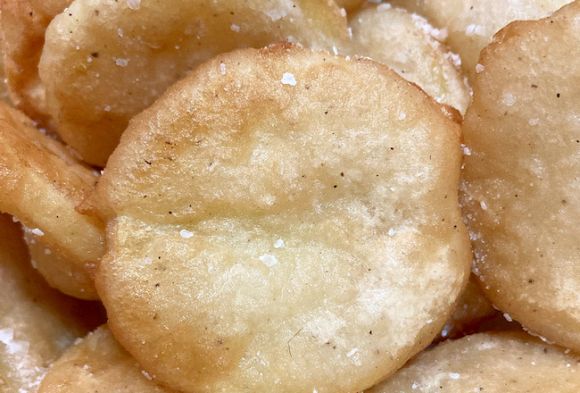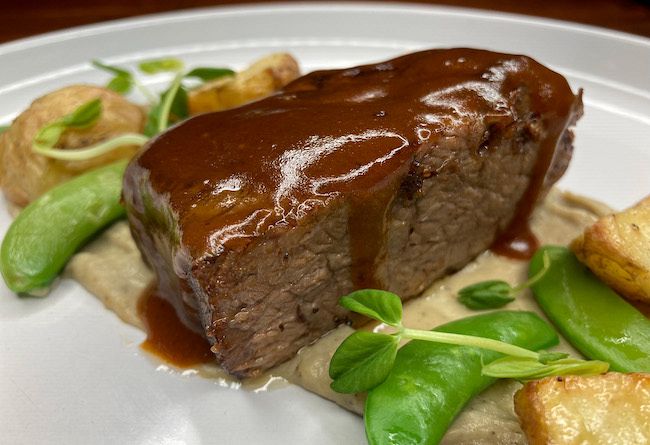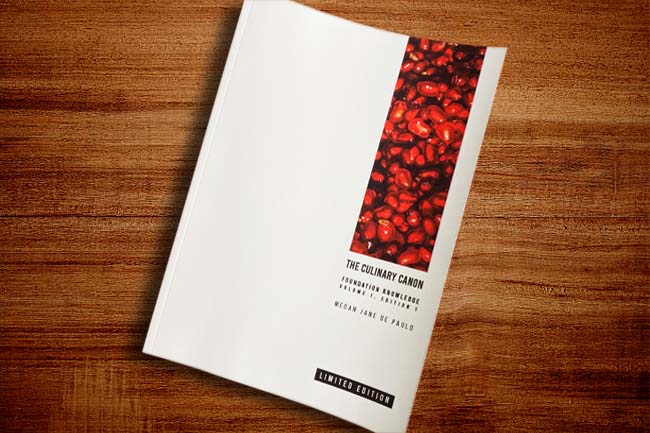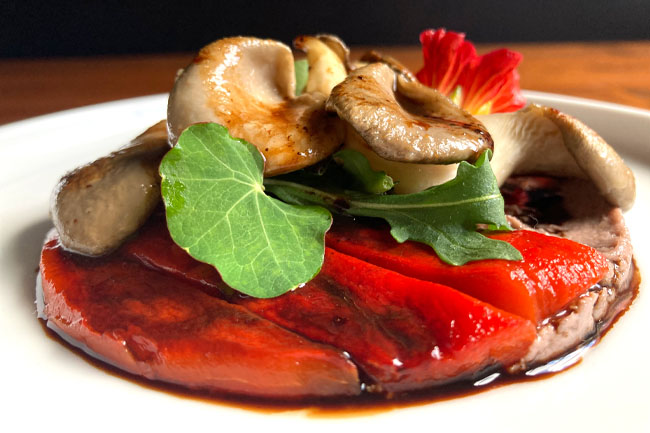The wellness industry has infiltrated even food magazines, using food-shaming language while promoting the latest diet trends, which can lead to body shame and eating disorders, writes Megan Jane de Paulo.
*CONTENT WARNING: This article discusses eating disorders
GUILT-FREE. Detox. Fresh start. Naughty.
All phrases that have been tossed around by the diet industry for decades.
Except I didn’t read them in a diet book. They weren’t in advertisements shoved at me from the wellness industry — I read them in food magazines.
You might not even notice the words, as they are so endemic within food literature. Sandwiched between pages of appetising photographs and the directions to create them are these barbs of abashment pricking at your conscience.
Your eyes settle on a particularly delicious-looking cake and your head voice coos “oooooh”, but these words cut through. You imagine yourself walking naked through a jeering crowd, a stern crone behind you shouting: "Shame. Shame. Shame!"
These admonishing phrases do not belong in food magazines, cook books or videos. Food is not something to be guilty about. Food doesn’t toxify you. Food isn’t naughty. Junk food is a misnomer. Health food is a fable.
It’s just food.
Food positivity is a movement against the food-shaming wave constantly cascading over us. It’s basic principle is that no food is bad; apply moderation in regards to calorie intake for your body’s needs and the nutritional value of ingredients.
There are no forbidden foods. No diets. Eat, enjoy and be sensible. Sure, eat vegetables, fruit and grains because they have important nutrients we need — but also, don’t associate virtue with only consuming such, or vice if you eat a muffin.
Food positivity goes hand in hand with body positivity. Given a large percentage of our population is currently struggling with food and diet issues, it should come as no real surprise that the Australian of the Year 2023 is Taryn Brumfitt, body image advocate and founder of Body Image Movement (BIM) which aims to reach out not just to Australians, but internationally. Brumfitt's message is to encourage us – especially children and younger people – to accept and embrace the bodies we have.
Some have spoken out against her appointment. This comes from a place of ignorance. Body positivity is more about mental than physical health. It is abundantly clear that our mental health is in decline regarding our relationships with our bodies and diet. A body image advocate is an obvious choice when you consider how many of us are affected by body shame. Some criticise her choice saying she is just a social media influencer, but social media is the battleground on which much of this war is being fought.
Food positivity isn’t about excess or advocating licentious consumption. It’s about removing the negative language and thoughts that have come to be associated with food — thoughts which destroy our self-esteem and drive us to risk our health with preposterous diet fads and – for many – lead us down the path of eating disorders.
According to the National Eating Disorders Collaboration (NEDC), each year, about a million Australians are living with an eating disorder. Many are young Australians and this number is increasing at alarming rates.
Millions of us are on diets or will start that diet next week... okay, maybe tomorrow after we eat this piece of cake... oops, no, the day after tomorrow because I had fish and chips… okay, definitely on Monday next week… I will only drink juice for a week... health, health, health darlings!
Concurrently, 67 per cent (12.5 million people) of adults in Australia are overweight or obese, says the Australian Institute of Health and Welfare — note these statistics are based on body mass index (BMI) which has itself become a controversial tool for assessing obesity due to its cookie-cutter approach to body types and individual circumstances.
What does this all mean? It is clear that we have a seriously fucked-up relationship with food and diet. We are food masochists. We lustily devour forbidden fruits, admonish our naughty selves and self-flagellate in shame through sham diets and exercise approaches.
Just eat the fucking piece of chocolate! Enjoy the taste, the sensual embrace as it melts on your tongue. Grab that carrot — the crunch is so satisfying. So juicy! Both foods nourish your body. Neither should cause you to feel bad about yourself.
Taryn Brumfitt and numerous other body positivity advocates are locked in a "David and Goliath" battle with the insidious diet and wellness industries. Industries worth billions of dollars.
It’s not in such industries' interest to help you achieve the goal of your “perfect” body because when you get off the treadmill of diet fads and the latest exercise equipment to add to the dust accumulating pile in your shed, you stop throwing wads of cash at them.
The Ketogenic diet (Keto), cleansing and detoxing, paleo, intermittent fasting: these ever-changing trends aim to slim one thing only — your wallet.
Maybe you lose weight at the start. Then you gain it back. Then you try another diet — it’s known as yo-yo dieting for a reason. Changing your attitude about your relationship with food and your body and adopting a positive approach is much more difficult than following a bunch of strict instructions from some buff person you saw on Instagram.
Food magazines and cookbook creators are all eager for a huge slice of the "wellness industry pie". That’s why they use language that shames. Promoting the latest diet trends — wedged in between recipes. Feature articles from people pushing their latest "no sugar", "low fat", "no carb" and "keto" agendas. Publishing special collections of recipes to appeal to people latching onto the latest trend. Give us your money too, because we believe in the latest wellness fantasy! Buy us!
Food and recipe writers and publishers — inspire us with your photographs and descriptions! Teach us techniques and ways to make delicious food. Abandon the negative language, this damaging reinforcement of the latest body-shaming trends. Embrace the positive.
If you would like to speak to someone about eating disorders, you can call Lifeline on 13 11 14 or Kids Helpline on 1800 551 800.
Megan Jane de Paulo is a Melbourne-based, inner-city latte sipper and social media provocateur. You can follow Megan on Twitter @gomichild.
 This work is licensed under a Creative Commons Attribution-NonCommercial-NoDerivs 3.0 Australia License
This work is licensed under a Creative Commons Attribution-NonCommercial-NoDerivs 3.0 Australia License
Support independent journalism Subscribe to IA.














